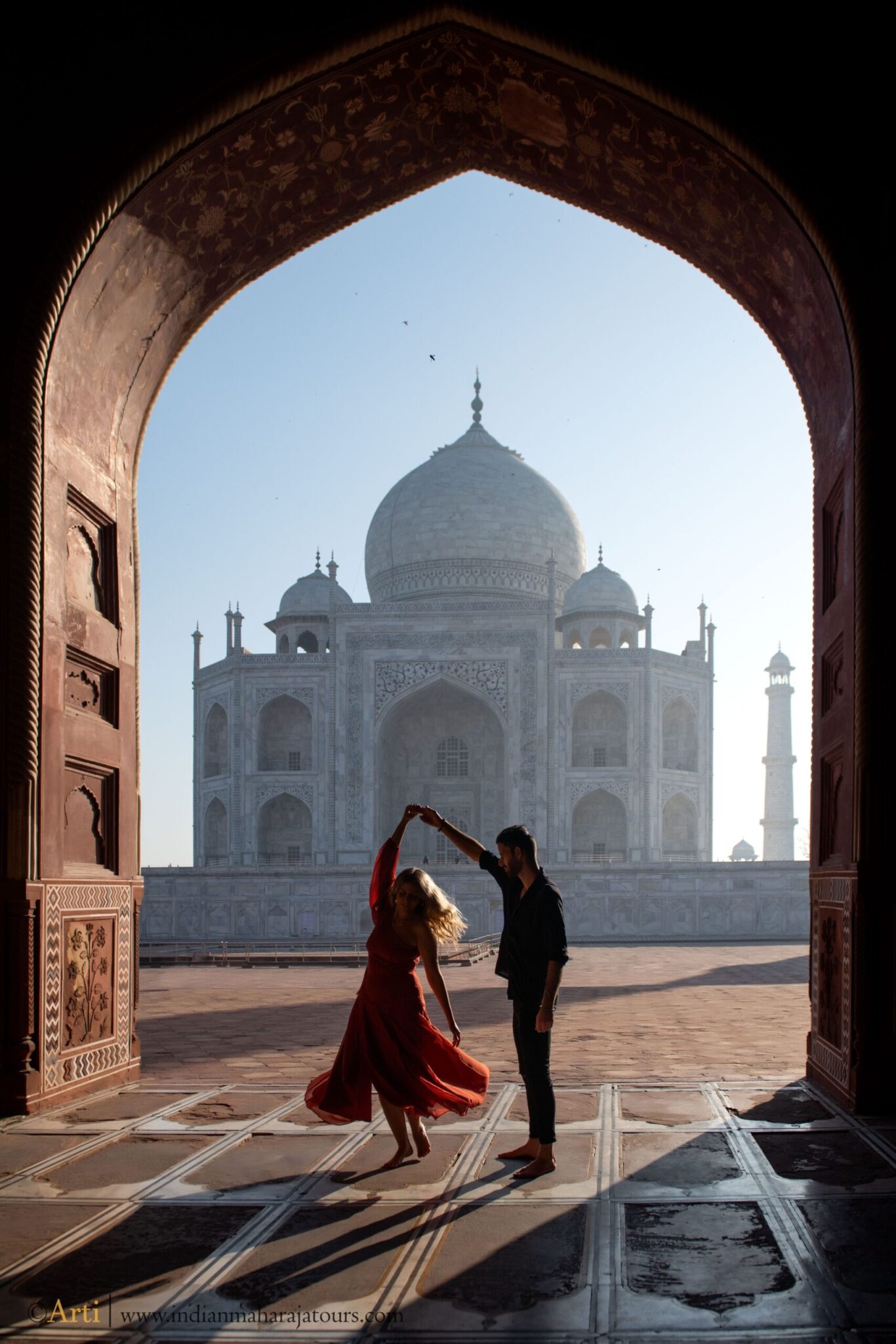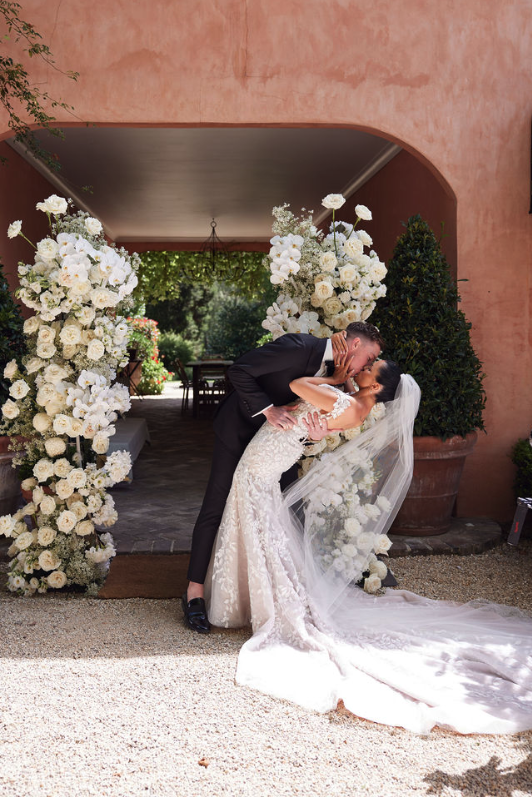A wedding is an important occasion in Pakistani culture, and planning a Pakistani wedding requires a lot of attention to detail. From the traditions to the attire, there are many elements to consider when planning this significant event. In this article, we will explore how to plan a Pakistani wedding and what you need to know about its traditions, the ceremony, the reception, traditional wedding ensembles, and where Pakistani weddings take place.
Table of Contents
Traditions
These traditions make Pakistani weddings such a joyous and colorful occasion. Each tradition is a reflection of the unique cultural heritage and traditions of the region, and adds to the rich tapestry of the wedding celebration.
- Nikah: The Nikah ceremony is the sacred moment when the bride and groom exchange vows, pledging to love, honor, and cherish each other. As the two families come together, the Imam, or religious leader, recites verses from the Quran and witnesses the signing of the marriage contract, sealing the couple’s commitment to one another.
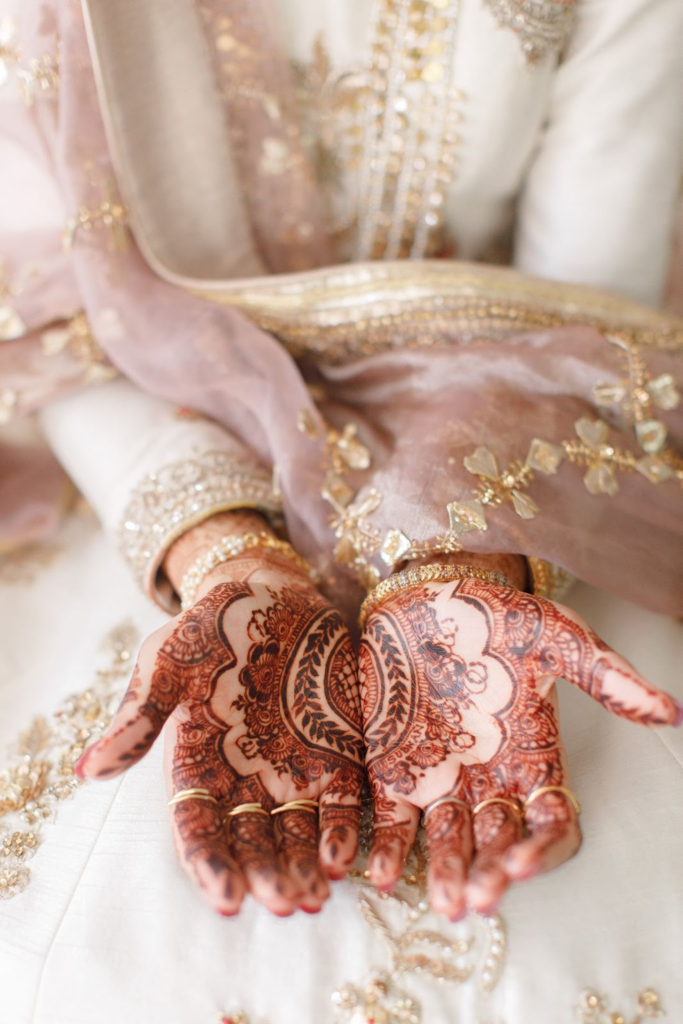
- Mehndi: A lively celebration filled with music, dancing, and intricate henna designs, the Mehndi ceremony is a beloved pre-wedding tradition. It’s typically held a few days before the wedding day, and is a chance for the bride and groom’s families to come together, share in the joy, and celebrate with one another.

- Baraat: A grand and joyous procession that marks the arrival of the groom to the wedding venue, the Baraat is an unforgettable experience. The groom arrives on horseback, adorned in traditional attire, and is greeted by the bride’s family. There’s music, dancing, and a carnival-like atmosphere, as everyone celebrates the union of two families.
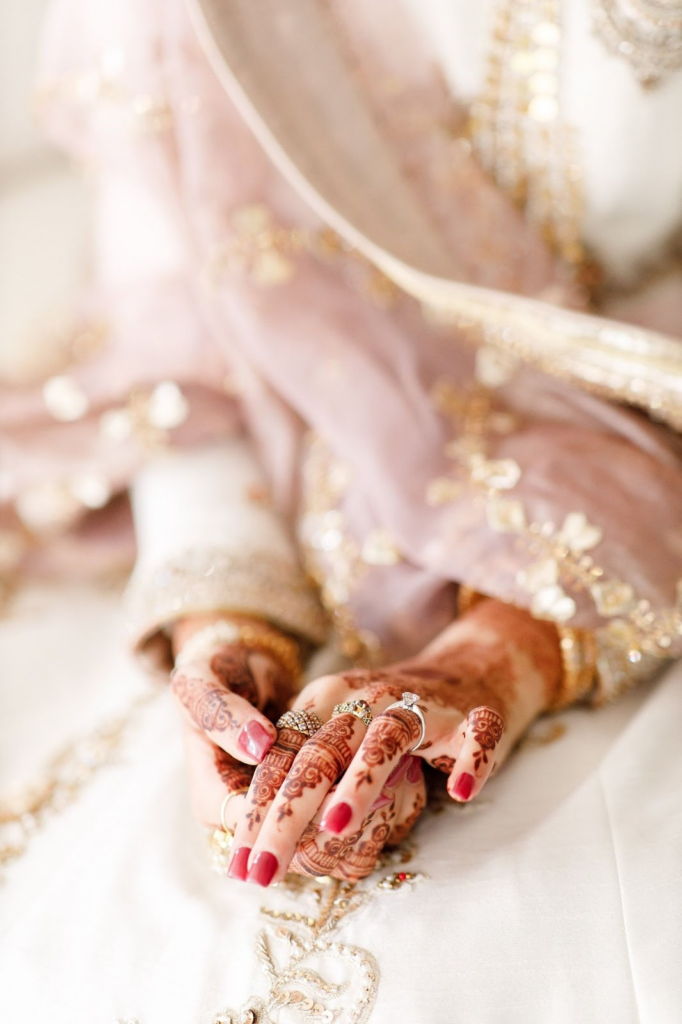
- Dowry: As a sign of love and respect, it’s customary for the groom to present the bride with a dowry, which can include jewelry, clothing, or other items of value. It’s a way for the groom to show his appreciation for his bride and her family, and is a cherished tradition that adds to the richness of the wedding celebration.
The Ceremony
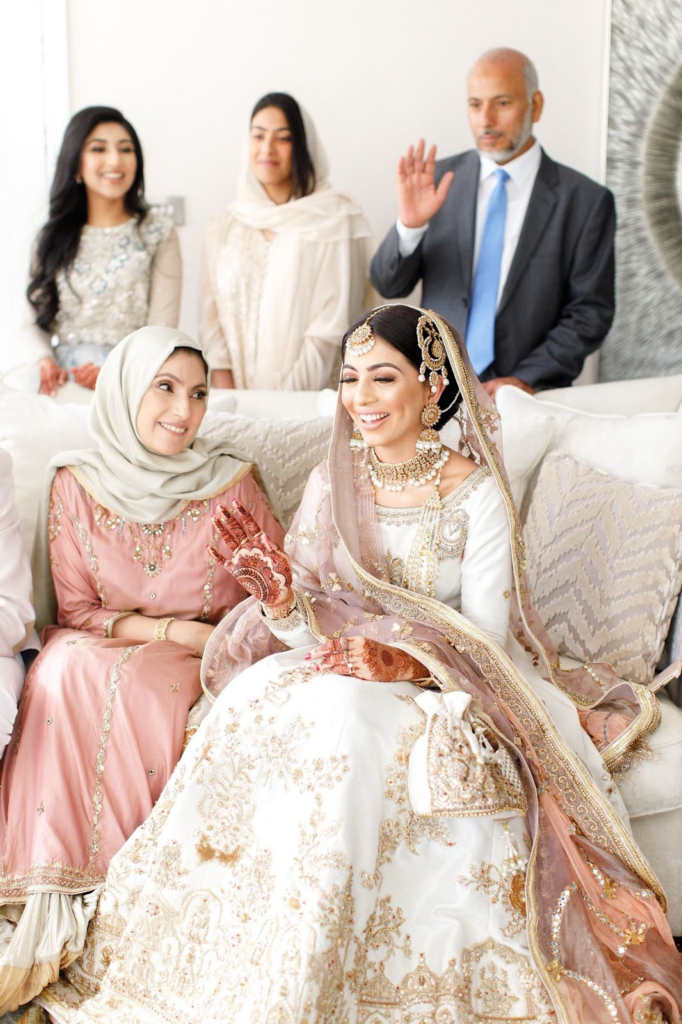
The wedding ceremony itself is called the “Nikah.” This is the formal contract between the bride and groom, where they both agree to marry each other. The Nikah is conducted by an Islamic scholar or a priest and is usually held in a mosque or a hall.
During the Nikah, the bride and groom exchange vows and sign the marriage contract in the presence of witnesses. The bride’s father or a male family member gives her away, and the groom accepts her as his wife. The ceremony is concluded with a prayer and a reception.
The Reception
After the Nikah, the couple and their families celebrate with a reception. The reception is usually a grand event, with music, dance, and food. The bride and groom enter the reception venue together, and the guests greet them with rose petals and confetti.
The reception usually includes speeches from family members, friends, and the couple. There is also a lot of dancing, with both traditional Pakistani dances and Western music. The food at the reception is usually a lavish spread of Pakistani cuisine, including biryani, kebabs, and sweets.
Traditional Wedding Ensemble

The traditional wedding ensemble for the bride is a heavily embroidered dress known as a “lehenga” or “sharara.” The dress is usually in bright colors, such as red, green, or gold, and is heavily embellished with sequins, beads, and embroidery.
The groom’s traditional wedding outfit is a “sherwani,” which is a long jacket worn over a pair of trousers. The sherwani is usually in a muted color, such as white, cream, or gold, and is embellished with embroidery or embellishments.
Where do Pakistani Weddings Take Place?
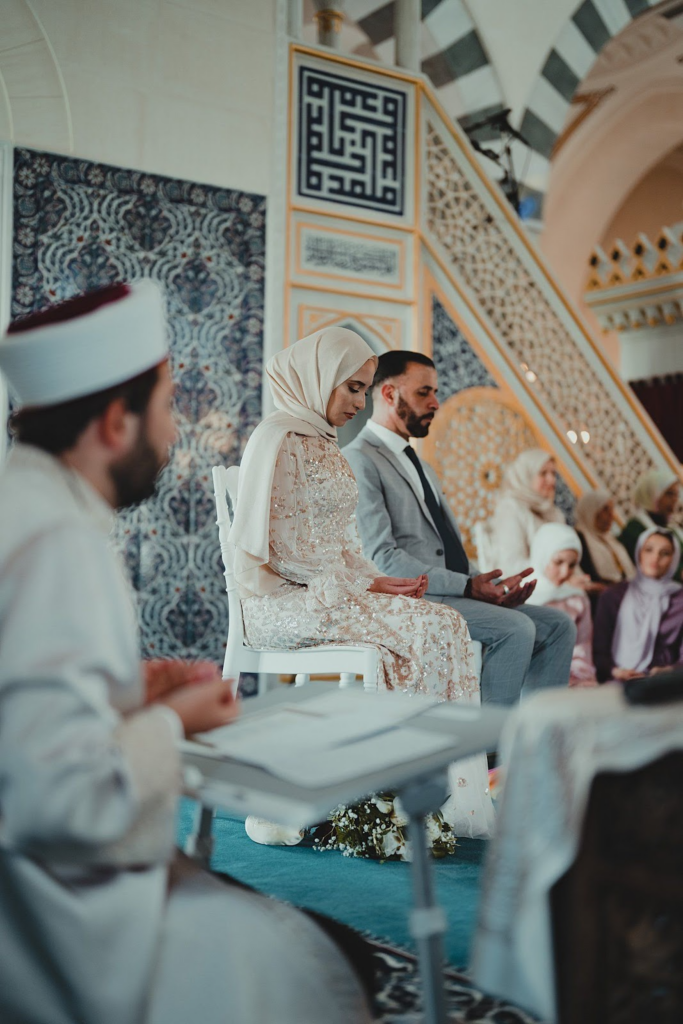
Pakistani weddings are celebrated with great enthusiasm and are usually held in venues that reflect the couple’s taste and budget. There are various options available for hosting a wedding in Pakistan, including mosques, wedding halls, and outdoor venues such as gardens, farms, or beaches.
The choice of venue depends on various factors such as the size of the guest list, the season, and the budget. Mosques are often chosen for the nikah ceremony, while wedding halls provide a more formal setting for the reception.
Planning a Pakistani wedding involves incorporating rich cultural traditions and customs that have been passed down through generations. From the engagement ceremony to the lively reception, a Muslim wedding is a celebration of love, family, and community. By understanding these traditions and customs, you can create an unforgettable event that reflects your heritage and celebrates your unique love story.
READ MORE: Love Across Cultures: A Dubai Destination Wedding
